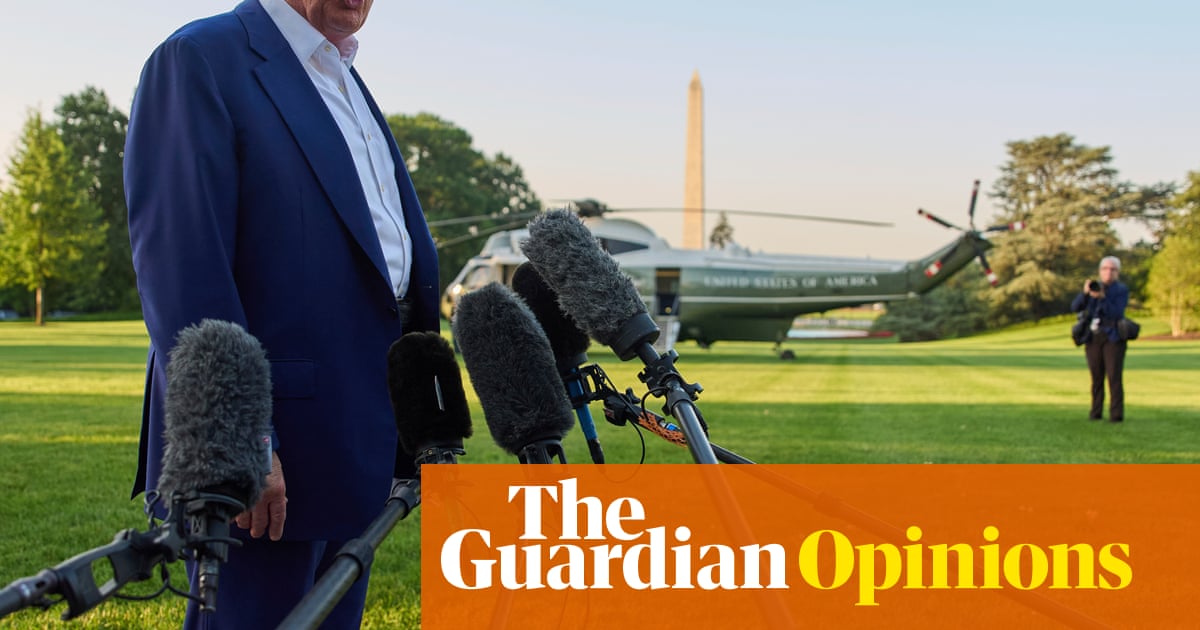Trump's Doctrine of Strategic Unpredictability Undermines Traditional Diplomatic Framework

President Donald Trump's most candid articulation of his governing philosophy emerged during an impromptu exchange on the White House lawn: "I may do it. I may not do it," he declared to assembled reporters. "Nobody knows what I'm going to do." This stark proclamation of strategic unpredictability, initially concerning potential military action against Iranian nuclear facilities, crystallizes the fundamental tension between Trump's instinctive leadership style and the complex demands of international diplomacy.
The doctrine of deliberate inscrutability extends far beyond military affairs, permeating every aspect of Trump's approach to governance. Whether discussing tariff implementations, immigration enforcement through potential military deployment against non-compliant citizens, or fundamental treaty obligations, Trump's systematic cultivation of uncertainty has become both a personal trademark and a calculated instrument of political control. This volatility represents more than mere presidential eccentricity—it constitutes a learned management technique rooted in methods of psychological manipulation.
Trump's approach generates systematic disorientation among those within his sphere of influence. Subordinates, allies, and even family members find themselves perpetually suspended between anticipation and anxiety, forced to interpret fleeting gestures and parse ambiguous statements for hints of presidential intent. This dynamic strips individuals of autonomous decision-making capacity, creating a dependency structure where survival requires constant attention to the leader's mercurial moods. Such techniques mirror classic patterns employed by authoritarian figures and cult leaders throughout history.
While this methodology proves effective within the hermetic environment of Trump's inner circle, where loyalty and access can be manipulated through fear and favor, it encounters fundamental limitations when applied to international relations. Foreign leaders, unlike White House courtiers, cannot be controlled through proximity or patronage. They approach Trump with their own national imperatives, viewing American presidential approval as one factor among many in complex geopolitical calculations. This reality explains Trump's documented aversion to international travel and his preference for domestic rallies where unconditional adoration remains guaranteed.
The inherent limitations of Trump's unpredictability doctrine manifest most clearly during multilateral negotiations, particularly within NATO frameworks. At the recent Hague summit, Trump's barely concealed contempt for European democratic institutions created an atmosphere of barely managed crisis. His fundamental resentment toward European reliance on American military guarantees, combined with his transactional view of alliance obligations, forces European leaders into an impossible strategic position. They must simultaneously court Trump's favor while preparing contingency plans for potential American abandonment.
Matthew Whitaker, serving as America's permanent NATO representative, embodied this contradiction perfectly during summit proceedings. While attempting to project confidence about American engagement levels, Whitaker ultimately conceded the fundamental unpredictability at the heart of Trump's approach: "I don't want to claim to be able to read his mind and know what he's going to say." This admission encapsulates the doctrine's central paradox—strategic ambiguity designed to maintain control instead creates systemic instability that undermines American influence and alliance cohesion.
🔮 Fortellr Predicts
Confidence: 85%
President Donald Trump's adherence to a doctrine of strategic unpredictability continues to shape the geopolitical landscape in ways that may destabilize traditional alliances and encourage adversarial powers like Russia and Iran to pursue opportunistic strategies. In the context of NATO, European leaders are compelled to demonstrate financial commitment to defense, as Trump has consistently emphasized a transactional approach to international security, linking it directly to economic contributions. The recent ceasefire between Israel and Iran, brokered by Trump, could bring temporary stability, but his unpredictable foreign policy style may weaken lasting diplomatic efforts and may even incentivize both nations to prepare for further conflict, undermining the ceasefire. Additionally, Trump's maneuvers around NATO and his administration's conflicting signals regarding the Russian and Ukrainian conflict may lead to a fracturing within the alliance, as European countries may start formulating independent or regional defense strategies to ensure their security against Russian aggression. On the economic front, Trump's varied use of tariffs and economic sanctions is likely to create volatility in global markets, affecting trade partnerships, notably with European allies and adversaries like China and Russia. Moreover, Trump's policies align with the broader geopolitical theme of eroding multilateral institutions, which in turn may diminish the United States' influence, encourage regional hegemons to contest the international order, and heighten global tensions.